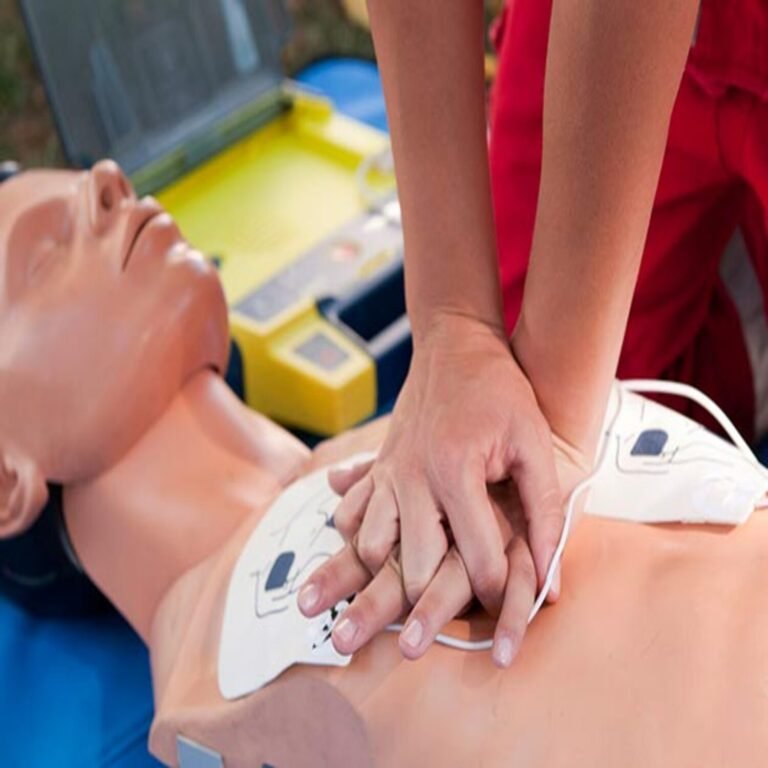Cardiopulmonary resuscitation (CPR) is a critical life-saving technique used in emergencies such as cardiac arrest. Healthcare providers, including doctors, nurses, and paramedics, are often required to maintain a valid CPR certification to ensure their competence in providing immediate and effective care. This article will explore the importance of CPR level C recertification and discuss the process of CPR renewal for healthcare providers.
The Significance of CPR Level C Recertification:
CPR level C certification is specifically designed for healthcare providers and covers essential techniques and procedures for adult, child, and infant CPR. As guidelines and best practices in CPR are updated periodically, it becomes crucial for healthcare providers to stay current with the latest standards. CPR level C recertification allows professionals to refresh their skills, update their knowledge, and ensure their competence in responding to cardiac emergencies.
Reasons for CPR Renewal for Healthcare Providers:
-
Updated Guidelines and Techniques:
CPR guidelines and techniques evolve over time based on research, advancements in medical science, and feedback from real-world scenarios. CPR renewal for healthcare providers ensures that they are aware of the latest changes and updates in CPR protocols. This enables them to provide high-quality, evidence-based care in emergencies.
-
Maintaining Competence:
Regular CPR renewal helps healthcare providers maintain their competence and confidence in performing CPR. By refreshing their skills and knowledge, healthcare professionals can respond promptly, efficiently, and with greater effectiveness during critical situations.
-
Legal and Professional Requirements:
Many healthcare organizations, hospitals, and regulatory bodies mandate CPR certification and renewal for healthcare providers as a requirement for employment or licensure. Failure to maintain an up-to-date CPR certification may result in professional consequences, including restrictions on practice or loss of employment opportunities.
CPR Level C Recertification Process:
-
Choose an Accredited Training Provider:
When seeking CPR renewal for healthcare providers, it is essential to select an accredited training provider. Accreditation ensures that the training program adheres to recognized standards and follows the latest guidelines. Organizations such as the American Heart Association (AHA) and the Canadian Red Cross are well-known for providing reputable CPR certification courses.
-
Review Course Requirements:
Before enrolling in a CPR level C recertification course, review the specific requirements of your healthcare organization or regulatory body. Determine if any additional certifications or specific course modules are necessary to fulfill the renewal criteria.
-
Attend CPR Renewal Course:
CPR renewal courses are typically shorter in duration compared to initial certification courses. These courses focus on refreshing the key concepts and skills required for CPR. They may include hands-on practice sessions, scenario-based simulations, and assessments to evaluate proficiency.
- Stay Updated with the Latest Guidelines:
During CPR renewal training, healthcare providers learn about the most recent changes in CPR guidelines, including any modifications to compression rates, ventilation ratios, or algorithm updates. Staying updated ensures that healthcare professionals are aligned with the most current evidence-based practices.
-
Obtain CPR Renewal Certification:
Upon successful completion of the CPR renewal course, participants receive a CPR renewal certification. This certification validates their competence in providing CPR level C and indicates their commitment to maintaining their skills.
Conclusion:
CPR level C recertification is a vital process for healthcare providers to ensure their competence in delivering life-saving CPR techniques. By undergoing CPR renewal, healthcare professionals stay updated with the latest guidelines and techniques, maintaining their ability to respond effectively during emergencies. Compliance with CPR renewal requirements is essential for both legal and professional reasons. Invest in your professional growth, prioritize patient care, and renew your CPR certification regularly to remain a confident and capable healthcare provider.

